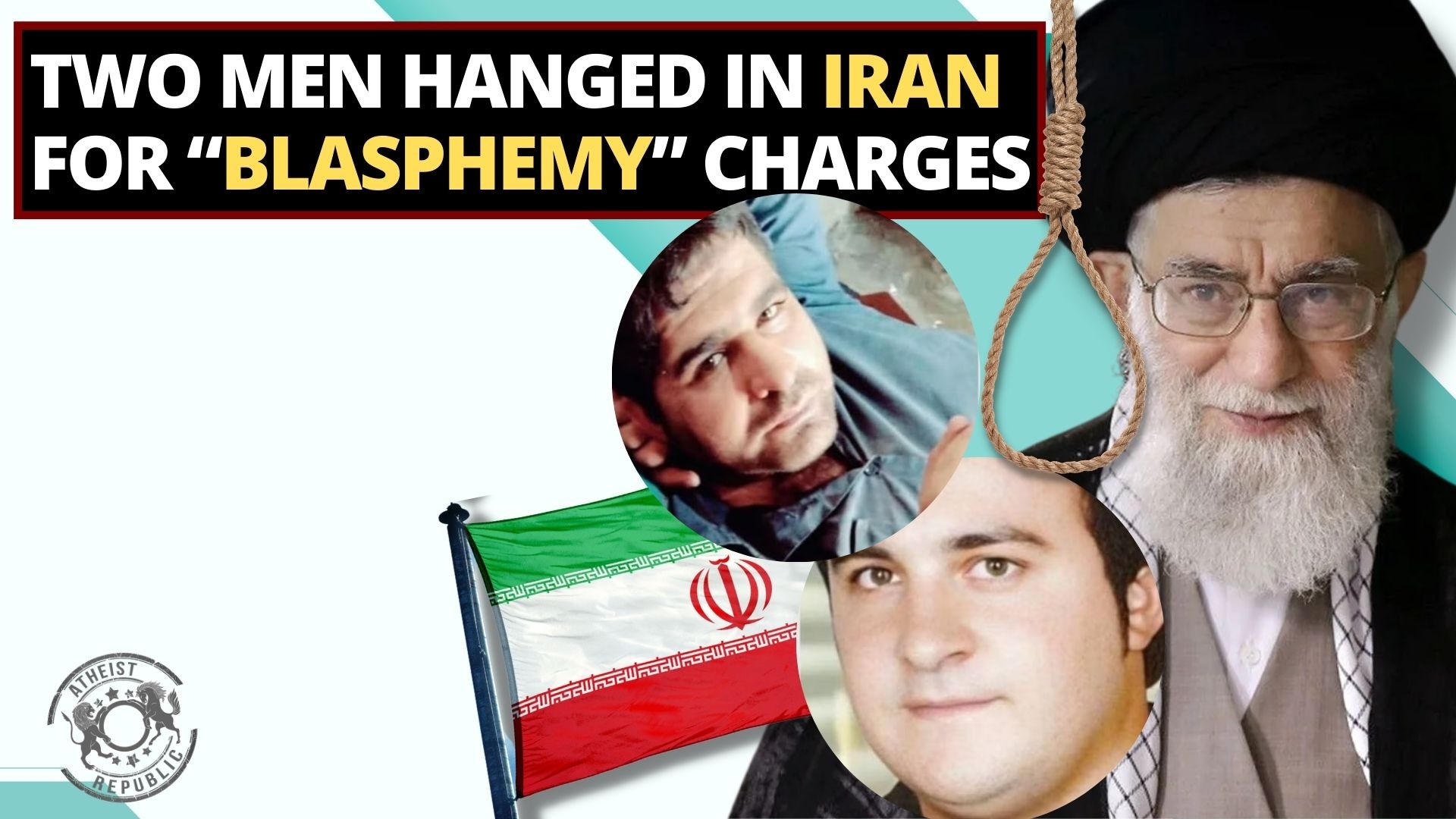
Iranian authorities announced that two men accused of blasphemy were hanged amidst a rising number of executions since the protests that rocked the country following the death of Mahsa Amini under police custody in September 2022.
Today's execution of Yousef Mehrdad & Sadrollah Fazeli Zare for "apostasy" marks a shocking new low for Iran's authorities & only furthers Iran’s pariah status. They were hanged solely for social media posts in a grotesque assault on the rights to life & freedom of religion. 1/ pic.twitter.com/T6eVmKqFaC
— Amnesty Iran (@AmnestyIran) May 8, 2023
According to the Iranian judiciary-linked news agency Mizan, Yousef Mehrad and Sadrollah Fazeli Zare were executed at the Arak Prison in central Iran. Zare and Mehrad were arrested in May 2020 for reportedly being involved in a Telegram channel called “Critique of Superstition and Religion.”
The men were executed in relation to social media activities on charges of:
- apostasy
- promoting atheism
- insulting the Prophet of Islam
- insulting Islamic sanctities
The use of the death penalty for such acts is another nail in the coffin of religious freedom in Iran. 2/— Amnesty Iran (@AmnestyIran) May 8, 2023
The US Commission on International Religious Freedom, which provided details about their arrest, also said that Mehrad and Zare spent months in solitary confinement and could not contact their families. Mehrad was a father of three young children.
Mizan not only confirmed Mehrad and Zare’s executions but also described them as having promoted atheism, insulted the Prophet Muhammad, and burned a copy of the Quran. However, it wasn’t clear if the two men burned the Quran themselves or if such imagery was shared on the Telegram channel.
This killing machine won't stop until the whole system is overturned
— Alireza (@armstory) May 8, 2023
Mahmood Amiry-Moghaddam, a neuroscientist and human rights advocate who leads the Norway-based Iran Human Rights, said the execution of Mehrad and Zare exposed the “medieval nature” of Iran’s theocratic republic.
“The international community must show with its reaction that executions for expressing an opinion is intolerable,” Amiry-Moghaddam said in a statement. “The refusal of the international community to react decisively is a green light for the Iranian government and like-minded people around the world.”
Amnesty International said in a Tweet that the latest execution marks “a shocking new low for Iran's authorities & only furthers Iran’s pariah status.”
“They were hanged solely for social media posts in a grotesque assault on the rights to life & freedom of religion,” the human rights group said in a Tweet, adding that the use of the death penalty against blasphemy charges is “another nail in the coffin of religious freedom in Iran.”
Iran shows only one thing to the rest of the world by this action. The personal insecurity of its ruling governance and its failing popularity .
— ALAN THRUSTON (@AlanThrust85469) May 8, 2023
The Islamic Republic remains one of the world’s top executioners, putting at least 203 prisoners to death this year alone. Executions have significantly increased since massive demonstrations sparked in 2022 after Mahsa Amini was arrested for not wearing her hijab correctly. She died under police custody, sparking a movement to topple the Islamic Republic.
Last May 6th, the Islamic Republic sentenced Habib Farajollah Chaab, a Swedish-Iranian dissident, to death for his connections with the separatist group Arab Struggle Movement for the Liberation of Ahwaz (ASMLA).
Chaab went missing two years ago after being last seen at a Turkish airport before turning up in Iranian custody. He was executed for terrorism charges which Amnesty International described as "a grossly unfair trial marred by torture and forced 'confessions.”
